Related Research Articles

Memorial Day is a federal holiday in the United States for mourning the U.S. military personnel who have died while serving in the United States armed forces. It is observed on the last Monday of May. It was formerly observed on May 30 from 1868 to 1970.
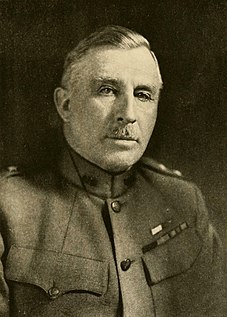
Leonard Wood was a United States Army major general, physician, and public official. He served as the Chief of Staff of the United States Army, Military Governor of Cuba, and Governor-General of the Philippines. He began his military career as an army doctor on the frontier, where he received the Medal of Honor. During the Spanish–American War, he commanded the Rough Riders, with Theodore Roosevelt as his second-in-command. Wood was bypassed for a major command in World War I, but then became a prominent Republican Party leader and a leading candidate for the 1920 presidential nomination.
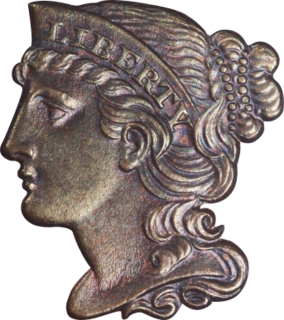
In the 1860s, the Copperheads, also known as Peace Democrats, were a faction of Democrats in the Union who opposed the American Civil War and wanted an immediate peace settlement with the Confederates.

The American Civil War was the most widely covered conflict of the 19th century. The images would provide posterity with a comprehensive visual record of the war and its leading figures, and make a powerful impression on the populace. Something not generally known by the public is the fact that roughly 70% of the war's documentary photography was captured by the twin lenses of a stereo camera. The American Civil War was the first war in history whose intimate reality would be brought home to the public, not only in newspaper depictions, album cards and cartes-de-visite, but in a popular new 3D format called a "stereograph," "stereocard" or "stereoview." Millions of these cards were produced and purchased by a public eager to experience the nature of warfare in a whole new way.
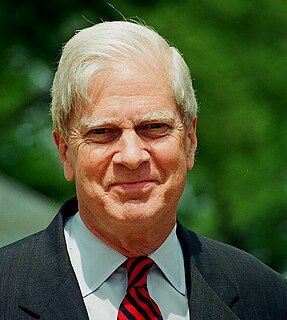
James Hadley Billington was an American academic and author who taught history at Harvard and Princeton before serving for 42 years as CEO of four federal cultural institutions. He served as the 13th Librarian of Congress after being nominated by President Ronald Reagan in 1987, and his appointment was approved unanimously by the U.S. Senate. He retired as Librarian on September 30, 2015.

Peter Force was an American politician, newspaper editor, printer, archivist, and early American historian. He was twice elected the twelfth Mayor of Washington D.C. During his lifetime he amassed an invaluable and vast collection of books, manuscripts, original maps and other archival material from statesmen, and American and British military officers of the American Revolution. Force's collection is considered to be among the most extensive. Force served in the Washington militia as a lieutenant during the War of 1812. Politically, he was a member of the Whig Party, and supporter of John Quincy Adams. He is mostly noted for editing and publishing a massive collection of historical documents, books and maps in several volumes involving the American colonies and the American Revolution which was ultimately purchased by the Library of Congress for a large sum. Force founded a political journal and other publications and was president of a premier national science society, and the Typographical Society which was largely charged with the task of communicating political affairs to the general public. Force served on the committee that approved the Geographical Department for the Library of Congress. During the international political unrest caused by the American Civil War, Force was sent to Europe by the Lincoln Administration to stabilize diplomatic relations with France and England.

Adolphus Washington Greely was a United States Army officer and polar explorer. He attained the rank of major general and was a recipient of the Medal of Honor.

James G. Neal is an American librarian, library administrator, and a prominent figure in American and international library associations.
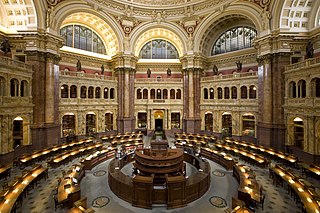
The Library of Congress (LC) is the research library that officially serves the United States Congress and is the de facto national library of the United States. It is the oldest federal cultural institution in the country. The library is housed in three buildings on Capitol Hill in Washington, D.C.; it also maintains a conservation center in Culpeper, Virginia. The library's functions are overseen by the Librarian of Congress, and its buildings are maintained by the Architect of the Capitol. The Library of Congress is one of the largest libraries in the world. Its "collections are universal, not limited by subject, format, or national boundary, and include research materials from all parts of the world and in more than 450 languages."

The state of Illinois during the American Civil War was a major source of troops for the Union Army, and of military supplies, food, and clothing. Situated near major rivers and railroads, Illinois became a major jumping off place early in the war for Ulysses S. Grant's efforts to seize control of the Mississippi and Tennessee rivers. Statewide, public support for the Union was high despite Copperhead sentiment.

The L'Enfant Plan for the city of Washington is the urban plan developed in 1791 by Major Pierre (Peter) Charles L'Enfant for George Washington, the first president of the United States.

Allen Wilson Greene, also known as Will Greene, is an American historian, author, and retired museum director. Greene was the director of the Association for the Preservation of Civil War Sites. Later, he became director of Pamplin Historical Park and the National Museum of the Civil War Soldier in Petersburg, Virginia. He also served on the national oversight board for the Institute of Museum and Library Services Over the years, Greene has made ten appearances on C-SPAN.

Benjamin Bowles Hampton (1875–1932) was an American film producer, writer, and director. He led a 1916 plan to conglomerate film companies via acquisition. He was married to actress Claire Adams and was a partner in Zane Grey Pictures. He wrote the History of the American Film Industry from Its Beginnings to 1931. He is credited with producing numerous films.
Cornelius Thurston Chase (1819–1870), originally of Massachusetts, was Florida's first Superintendent of Public Instruction and wrote a book about schoolhouses and cottages in the south as well as a book on school law of Florida. A statewide system of public education was established in the 1868 Florida Constitution. The Library of Congress has a collection of his family's papers.
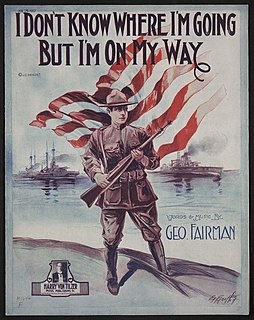
George Wayne Fairman (1881–1962) was a lyricist, composer, and music publisher whose work includes popular songs. Several of his songs charted including two that reached #1. Fairman's work includes coon songs, ragtime, songs related to World War I, and a foxtrot.
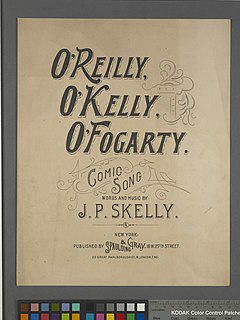
Joseph Paul Skelly, also abbreviated J. P. Skelley, was a composer of music. He arranged the music for songs published as sheet music. For other songs he composed the words and music. The Lester S. Levy Sheet Music Collection at Johns Hopkins University has sheet music for many of the songs he composed. The Library of Congress has several of his works in its collection.
Joseph Erskine Agnew was a musician, arranger, music store proprietor, and music publisher in Des Moines, Iowa and later Newton, Iowa briefly. He played the mandolin. He became a nationally prominent band music publisher. Sheet music published by his Agnew Music Publishing Company is in the collections of the Library of Congress, the University of Missouri-Kansas City, and the University of Rochester.
Lawrence Chesterfield Bryant was a professor, principal, pastor, and author. He wrote two books on South Carolina's 19th and early 20th century African American legislators. He was awarded the South Carolina Silver Crescent Award in 2005 for his research and work as an educator. Duke University has an extensive collection of his papers.
Maxine Finsterwald wrote radio scripts, plays, short stories, and newspaper features in the United States. She sometimes used the pen name Maxine Wood
References
- 1 2 3 4 5 6 "Collection: Wood Gray papers | GW Libraries Archival Collection Guides".
- ↑ Administration, United States National Aeronautics and Space (1965). "Semiannual Report to the Congress: Message from the President of the United States Transmitting the Report". U.S. Government Printing Office – via Google Books.
- ↑ Rawley, James A. (June 8, 1977). Lincoln and Civil War Politics. R. E. Krieger Publishing Company. ISBN 9780882755762 – via Google Books.
- ↑ Gray, Wood (June 8, 1959). "Historian's Handbook: A Key to the Study and Writing of History". Houghton Mifflin – via Google Books.
- ↑ Office, Library of Congress Copyright (June 8, 1957). "Catalog of Copyright Entries. Third Series: 1956". Copyright Office, Library of Congress – via Google Books.